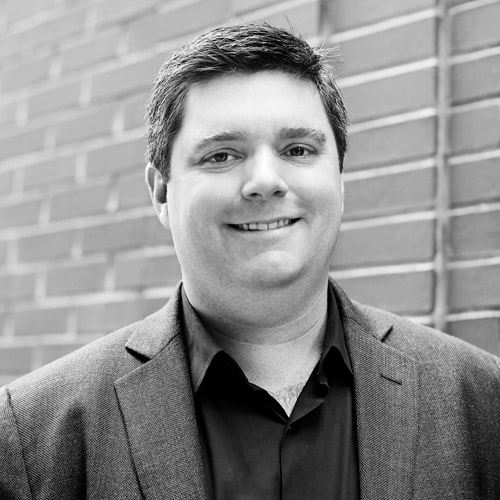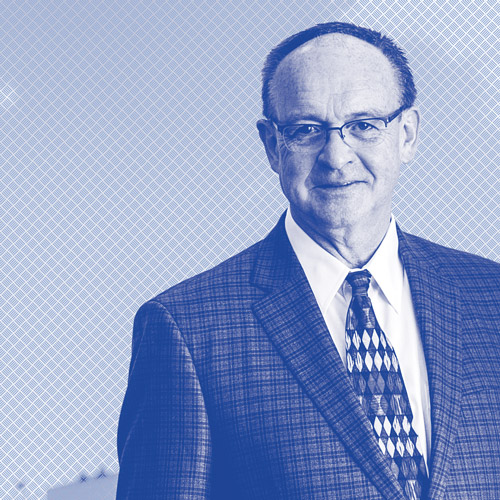After seventeen years in the Canadian market, Kia is gaining some strong traction. The automaker recently sold its 750,000th vehicle in Canada and is now the fastest-growing brand in the country. For Ted Lancaster, Kia Canada’s chief operations officer, that success is something to celebrate, but it’s not an excuse for the company to rest on its laurels.
“The brand impression is not as strong as we hoped for, being only at 80 percent against Honda, when our quality is the best in the industry,” he says. “There were challenges when we entered the market. We only had two models available, and for a long time, it’s been an uphill battle to make people realize how good the cars are.”
Nevertheless, the realization is spreading. In March 2016, Kia Canada launched the “Made For You” campaign, an advertising effort in which real customers talked about the vehicles, what they liked, what surprised them, and what delighted them. This came just prior to Kia landing atop the J.D. Power & Associates Initial Quality Survey—the first non-luxury brand to receive the distinction in twenty-seven years. “We’re on pace to see sales up year over year,” Lancaster says. “We’re seeing gains in brand interest.”
The Road To Green
Kia’s commitment to environmentally friendly vehicles has already resulted in the company’s first zero-emissions model, the Soul EV, and in 2017, the automaker will launch the Niro Hybrid, which Ted Lancaster describes as being designed “from the ground up” as a full hybrid utility vehicle.
Although technology is limiting an electric vehicle’s battery mileage to roughly 160 kilometers, Lancaster says that the next step will be passing 250 kilometers, and engineers are working on making this a reality. “It takes time to develop, and time for the technology to catch up,” he says. “We want to not only produce the cleanest vehicles possible, but also the most fuel efficient, so we will continue to pursue the next steps.”
That Lancaster is involved with this turnaround and making these efforts to promote and grow Kia Canada is no surprise. From his time playing minor league hockey in the San Jose Sharks organization to his first jobs in sales, he’s been driven by teamwork and the ability to make connections with people. Although he concedes that there can often be a disconnect in automotive companies between executives in original equipment manufacturer (OEM) offices and employees on the dealership floor, Lancaster knows there needs to be a connection between the two. He’s seen it from both sides.
“I know what dealers face,” he says. “I’ve watched margins change. Having had the opportunity to work in dealerships allows me to reduce the disconnect between the OEM and the dealers.”
Although he studied law at George Mason, Lancaster says that early experiences in dealerships with other automotive companies, including GM and Honda, set the course for his career going forward. Not only did he enjoy the face-to-face experience of meeting people and helping them find their vehicle of choice, he also quickly gained an understanding of what kind of support dealers need from corporate leadership to succeed. That kind of know-how has proved invaluable throughout his career.
Teeing Up Trust
Ted Lancaster says there are two important lessons for business he learned from his father: that the only failure in life is the failure to try and that if you’re honest, you maintain your integrity and trust with others.
The second lesson, in particular, he saw in action when he was working with Mitsubishi. “I was in British Columbia, and my wife and kids were in Ontario,” Lancaster says. “They loaned her a car when she was in town, and my boss, Mark Leroeye, looked at my children. He says, ‘Are you going to miss your dad?’ They say, ‘Yes.’ He goes, ‘What’s he going to do without you guys around?’ Immediately, they said, ‘Golf.’” Mark asked, “How often does he golf?” His son replied, “Every day.”
When Mark told Ted what his son said, he replied to Mark, “Yes I do. I try to get out to the range at lunch and get in some practice.” He, of course, was worried that his kids had given his boss the wrong impression of his own work ethic. “Instead, Mark said, ‘As long as you’re hitting your targets and getting the job done, I won’t worry about what you do with your time outside the office.’ He had 100 percent trust in me, and that’s always stuck with me.”
“When I’m in an interview or talking with anyone, I’ll be the first to admit that I’m not an MBA,” Lancaster says. “But I’d put my twenty-plus years of experience up against anyone that does have an MBA. I want to talk to and hear from everybody—all the way downstream to directors, national managers, and support staff.”
His commitment to the job and passion for his team have even prompted those who’ve worked with Lancaster to give him the nickname “the bull terrier,” which he says is appropriate. “Those animals are fair, considerate, and loyal to a fault—but if they’re crossed, they’re quick to bite,” he says, although he adds that he’s hard-pressed to remember a time he’s been crossed and had to show his teeth.
Joining Kia Canada, he says, was a huge opportunity—not least of all because the automaker’s product far exceeded the industry’s expectation. The continuing goal of the company is to not only get that message to new customers, but to the rest of the industry as well. Lancaster says it will take a strong, collaborative effort, which is something he’s all too happy to help steer. He has mentoring sessions with employees once a month that focus on tasks, bigger ideas for the department, and ways that they can grow as employees. Collaboration is not only encouraged, but it’s also embraced. “Good ideas come from everywhere,” Lancaster says. “You just have to be willing to listen.”
The payoff in listening to those ideas is not just about gaining more traction for Kia. It’s about a company-wide investment in something far more long term. “I like to see people enjoy their work and be successful,” Lancaster says. “It’s a people environment. I take the time to shake hands and ask people how they’re enjoying the product. You know, there are always small conflicts between dealers and the OEM, but I like the challenge. This is a job where you can come in and try to change the future.”

